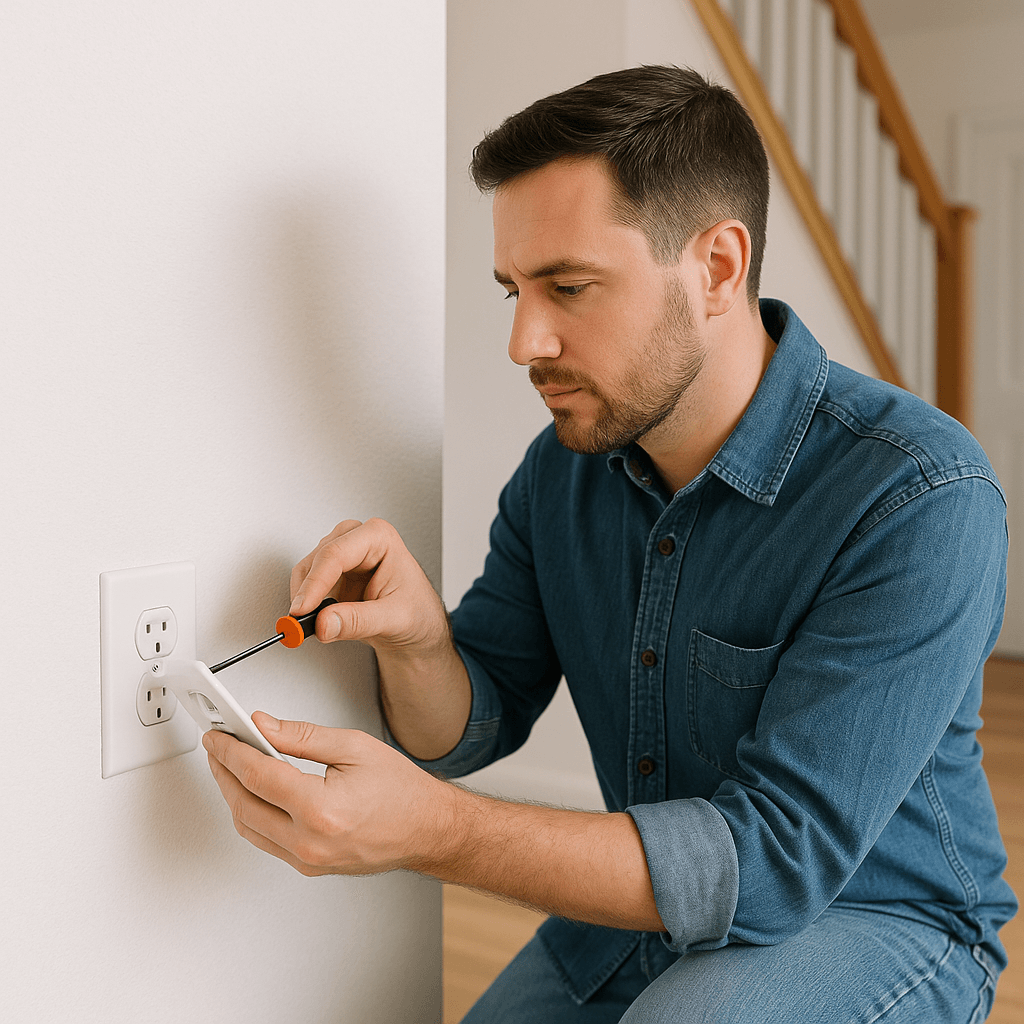Fixing things around the house doesn't always mean calling a professional. There are plenty of simple, safe DIY repairs that homeowners can do themselves with a few basic tools and some know-how. Whether it's a leaky faucet or a squeaky door hinge, tackling minor home repairs on your own can save money and give a sense of accomplishment.
Simple and Safe Repairs You Can Do Without a Professional
Fixing a Leaky Faucet
A dripping faucet is one of the most common household problems. It's usually caused by a worn-out washer or cartridge. You don't need a plumber to fix this, and doing it yourself can save you $50 to $150 in service fees.
- Tools Needed: Adjustable wrench, flat-head screwdriver, replacement washer or cartridge.
- Steps: Turn off the water supply, disassemble the handle, remove the faulty washer or cartridge, and replace it with a new one. Reassemble and test the faucet.
- Products: Danco Faucet Repair Kit ($5–$20), Moen Replacement Cartridges ($10–$25).
Patching Small Holes in Drywall
Small holes in drywall from nails or doorknobs can be easily fixed and don't require a call to a handyman. These repairs can be completed in under an hour and cost less than $15 in materials.
- Tools Needed: Putty knife, sandpaper, spackle or joint compound, paint.
- Steps: Clean the hole area, apply spackle, let it dry, sand smooth, and touch up with paint.
- Products: 3M Patch Plus Primer Kit ($10), DAP DryDex Spackling ($6).
- Tools Needed: Drain snake, plunger, or baking soda and vinegar.
- Steps: Try the plunger first. If that doesn't work, use a plastic drain snake to fish out debris. For mild clogs, pour baking soda down the drain, followed by vinegar, then flush with hot water.
- Products: FlexiSnake Drain Tool ($7), Green Gobbler Natural Cleaner ($12).
- Tools Needed: Adjustable wrench, pliers.
- Steps: Turn off the water supply, remove the tank lid, inspect the flapper and fill valve. Replace any worn-out parts and adjust the float level as needed.
- Products: Fluidmaster Complete Toilet Repair Kit ($20–$30), Korky Universal Flapper ($7).
- Tools Needed: Lubricating oil like WD-40 or petroleum jelly, rag.
- Steps: Open and close the door to find the noisy hinge, apply oil to the hinge pin, and wipe off any extra. Open and close the door a few times to distribute the oil evenly.
- Products: WD-40 Multi-Use Product ($5), 3-IN-ONE Lubricant ($4).
- Tools Needed: Scissors, tape measure.
- Steps: Measure the dimensions of the door or window, cut the weatherstripping to size, and apply it around the frame where air leaks.
- Products: Frost King Weatherseal Tape ($6), 3M Window Insulation Kit ($12).
- Tools Needed: None, just locate and remove the old filter.
- Steps: Turn off the system, remove the cover, slide out the old filter, insert the new one with the airflow arrows pointing in the right direction, and replace the cover.
- Products: Filtrete Allergen Defense Filters ($15–$30), Honeywell Home Filters ($12).
- Tools Needed: Touch-up paint, paintbrush, sandpaper.
- Steps: Clean the scuffed area, lightly sand if required, apply touch-up paint in thin layers, and allow it to dry completely.
- Products: Rust-Oleum Touch-Up Paint ($10), Behr Paint Samples ($6).
- Cost Savings: Avoiding service calls and labor charges can save hundreds of dollars a year.
- Learning New Skills: Every project helps you gain experience and become more confident with tools and repairs.
- Immediate Solutions: Fixing issues yourself means you don’t have to wait for a pro to be available.
- Customization: Doing the work yourself allows you to use the colors, styles, and materials that suit your taste.
- Sense of Pride: There's a great feeling of accomplishment after completing a home repair on your own.
- Basic tool kit – Includes hammer, wrench, screwdrivers, and pliers.
- First-aid kit – Essential in case of minor cuts or injuries.
- Instructional guides – DIY books or YouTube channels like “Home Repair Tutor” offer helpful visuals.
- “Basic Home Repairs Anyone Can Do” – Better Homes & Gardens
- “Top 10 Home Maintenance Tips” – Family Handyman
- “Fixing Common Household Problems” – Lowe’s Home Improvement Guides
- “DIY Home Repair Safety Tips” – The Home Depot
Unclogging a Slow Drain
Slow or clogged drains are often caused by hair, soap, and debris buildup. Instead of chemical cleaners, using safe methods can protect your pipes and the environment.
Stopping a Running Toilet
A toilet that won't stop running is usually because the flapper, fill valve, or float is malfunctioning. Replacing these parts is a quick fix, and DIYing it can save you up to $100.
Fixing a Squeaky Door Hinge
A squeaky door hinge might seem like a small issue, but it can be annoying and easily fixed. You don’t need to replace the door or the hinge—just a little lubrication can do the trick.
Weatherproofing Doors and Windows
Adding weatherstripping to your home can improve energy efficiency by preventing drafts. This simple task can lower utility bills and make your home more comfortable during extreme weather.
Replacing Air Filters
Changing the air filter on your HVAC system is a fast and effective way to improve air quality and increase the efficiency of your system. It’s recommended to replace filters every 1–3 months.
Touching Up Paint
Over time, walls can get scuffed or chipped. A quick touch-up can refresh any room and maintain home value without doing a full paint job.
Benefits of DIY Home Repairs
Staying Safe When Doing DIY Repairs
While many DIY home repairs are simple, safety should always come first. Always follow directions, wear protective gear like gloves and safety glasses, and know when to stop and call a pro—especially with electrical or structural concerns.
Some tools you should always have on hand include:
Whether you’re tightening a cabinet handle or replacing a showerhead, remember that even simple home fixes can make a big difference when done correctly.
Sources:
